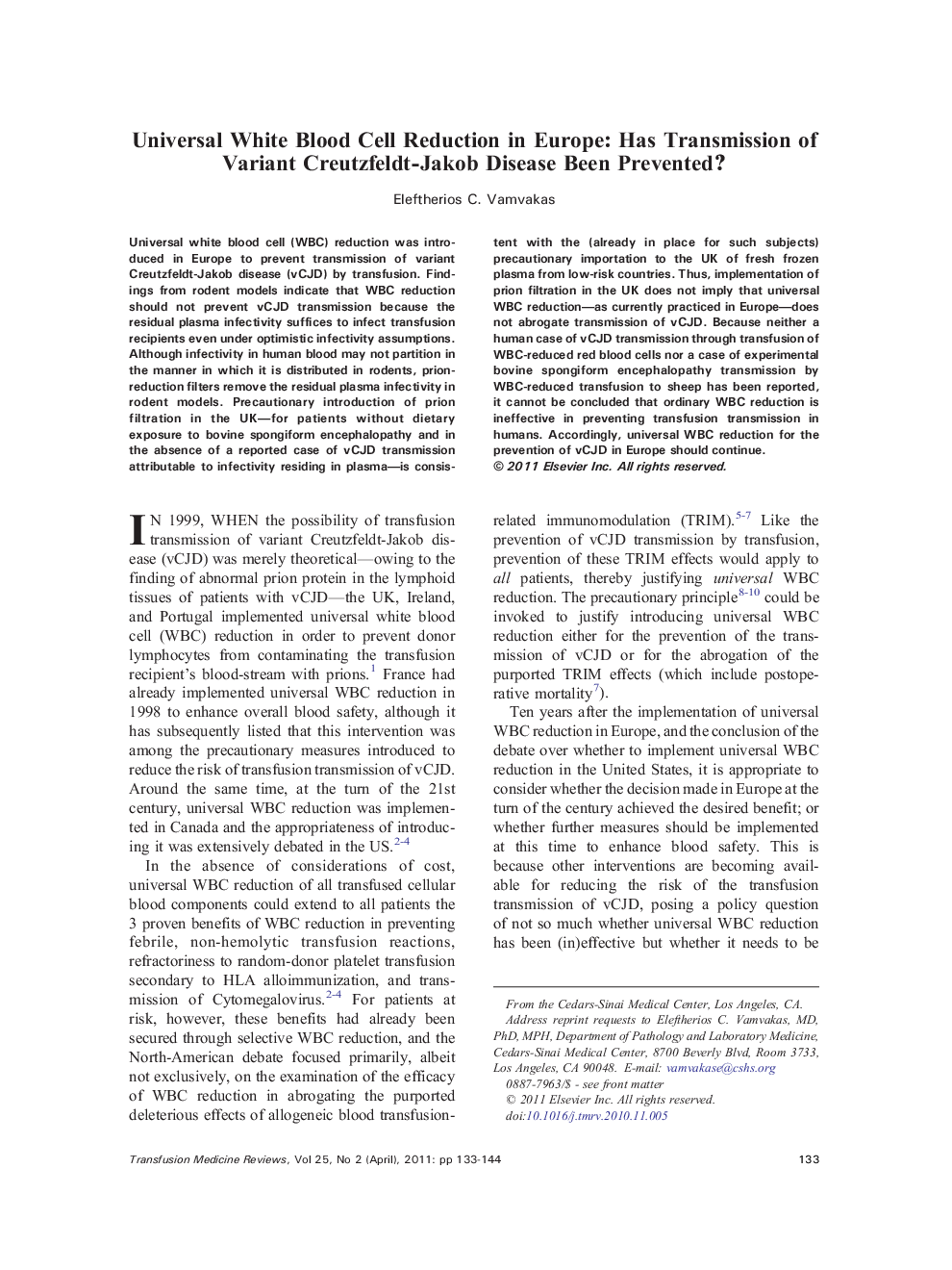| Article ID | Journal | Published Year | Pages | File Type |
|---|---|---|---|---|
| 3336902 | Transfusion Medicine Reviews | 2011 | 12 Pages |
Universal white blood cell (WBC) reduction was introduced in Europe to prevent transmission of variant Creutzfeldt-Jakob disease (vCJD) by transfusion. Findings from rodent models indicate that WBC reduction should not prevent vCJD transmission because the residual plasma infectivity suffices to infect transfusion recipients even under optimistic infectivity assumptions. Although infectivity in human blood may not partition in the manner in which it is distributed in rodents, prion-reduction filters remove the residual plasma infectivity in rodent models. Precautionary introduction of prion filtration in the UK—for patients without dietary exposure to bovine spongiform encephalopathy and in the absence of a reported case of vCJD transmission attributable to infectivity residing in plasma—is consistent with the (already in place for such subjects) precautionary importation to the UK of fresh frozen plasma from low-risk countries. Thus, implementation of prion filtration in the UK does not imply that universal WBC reduction—as currently practiced in Europe—does not abrogate transmission of vCJD. Because neither a human case of vCJD transmission through transfusion of WBC-reduced red blood cells nor a case of experimental bovine spongiform encephalopathy transmission by WBC-reduced transfusion to sheep has been reported, it cannot be concluded that ordinary WBC reduction is ineffective in preventing transfusion transmission in humans. Accordingly, universal WBC reduction for the prevention of vCJD in Europe should continue.
